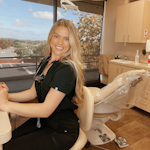Fresh out of dental hygiene school, you’re eager to embark on your professional journey and ready to deliver high-quality care to your patients. You’ve secured your first position as a dental hygienist, and as you step into the office on your very first day, you quickly realize that there are numerous aspects within the practice that require attention, improvement, or maintenance. The thought crosses your mind: Should I march right up to the office manager and voice my concerns? There’s a better way to vocalize your opinion—like an elite hygienist. Try this four-step process.
No. 1: Prioritize your concerns
Advocating for change in dentistry takes courage and strength, but if done incorrectly there’s the potential for it to be mistaken as rude or insulting. Before taking your concerns straight to the higher-ups, take a moment to think about the situation and begin developing a well-thought-out plan. Prioritizing a monthly singular focus increases the likelihood of achieving a successful outcome, as it acknowledges that not every issue can be fixed overnight.
Each month, compile a list of the three most pressing concerns you have. Then, identify and prioritize the single most important issue. Once you have identified the main concern, it’s time to develop a plan of action.
More about advocacy … Ready, set, advocate
No. 2: Determine an action plan
When raising awareness about issues within a dental office, it’s critical to accompany your concerns with solutions. This approach reduces the risk of being perceived solely as voicing discontent.
For example, rather than saying, “The ultrasonic tips suck and don’t work anymore,” a more constructive approach would be to say, “The ultrasonic tips have become less effective in recent use. I noticed there is a current promotion offering a buy one, get one deal. Can we explore the possibility of including this in this month’s budget?”
This not only highlights the issue but also offers a potential solution and demonstrates a proactive attitude toward problem-solving.
No. 3: Evaluate the issue from multiple perspectives
Looking at each concern from multiple perspectives is a valuable approach. This allows you to provide concrete examples of how addressing the issue will positively impact various aspects of the practice. For this example, let’s review how new ultrasonic tips could benefit the entire dental office.
From a patient-centered perspective, the purchase of new ultrasonic tips offers significant benefits: it ensures more effective and thorough cleanings, which translates to a higher quality care and increased patient comfort during the scaling process.
More about advocacy … Why advocacy is so much more than “politics”
Through the lens of the hygienist, utilizing new tips has several advantages. It reduces the need for hand scaling, which in turn increases the longevity of hand instruments and decreases the risk of injury to the hygienist. Moreover, the increased efficiency of these tips results in time savings, giving providers more time in other areas of the appointment.
Furthermore, we need to analyze the situation from a production standpoint. Improved patient satisfaction due to more comfortable cleanings can lead to an increase in referrals from satisfied patients.
Ultimately, new ultrasonic tips would benefit the practice as whole by contributing to the long-term retention of both patients and hygienists.
No. 4: Research your subject
When addressing concerns within a dental practice, it’s best to complete thorough research on the subject. It is highly likely that there are relevant articles and research that pertain to your specific concerns. Supporting your viewpoint with evidence-based research can strengthen the effectiveness of the conversation.
Learning more about the issue may lead to a broader understanding and, potentially, a shift in your perspective. A best practice in these scenarios is to prioritize comprehensive knowledge about your subject before initiating discussions about how to solve the problem.
More about advocacy … Advocacy 101: Being a champion for oral health
Advocate for your patients and your profession
Throughout one’s career there will be situations that require you to vocalize concerns and advocate for the profession and your patients. To set yourself up for success, it is imperative to approach advocacy with professionalism. This can be achieved by strategically prioritizing the issues at hand, creating a well-thought-out plan, understanding the many different perspectives involved, and conducting thorough research. By using these guidelines, hygienists can significantly increase their chances of achieving success while demonstrating their proficiency as an elite dental hygienist.
Editor’s note: This article first appeared in Through the Loupes newsletter, a publication of the Endeavor Business Media Dental Group. Read more articles and subscribe to Through the Loupes.







